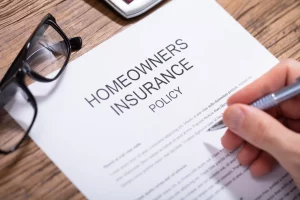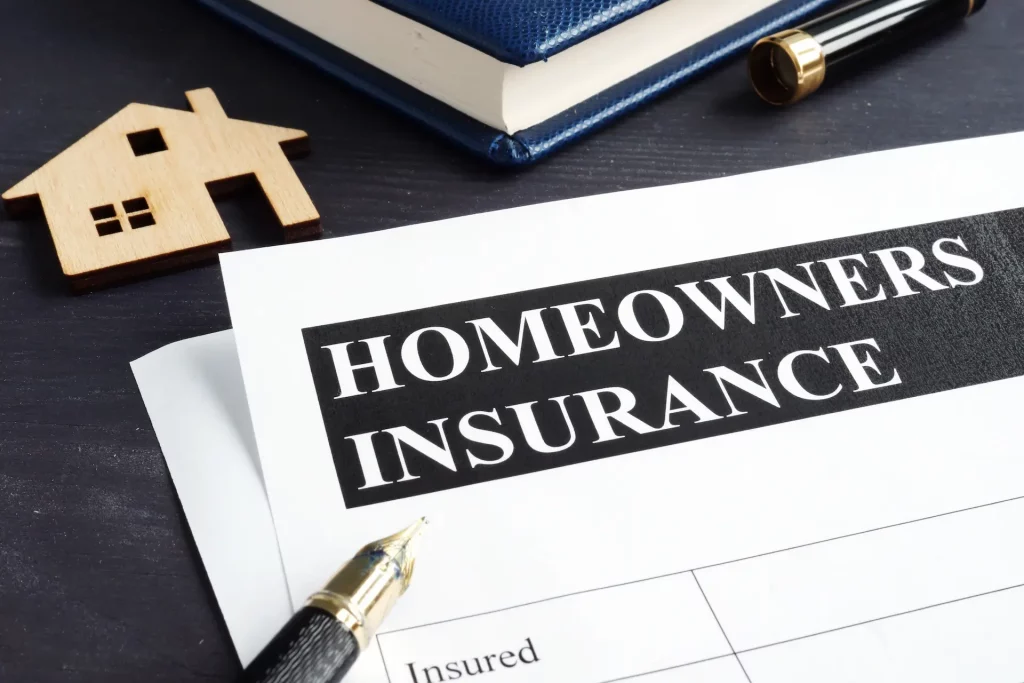Does Homeowners Insurance Cover Personal Injury?

Homeowners insurance offers a safety net to cover damages to your home and belongings in case of unfortunate events like fires, thefts, and natural disasters. However, it’s essential to understand the extent of its coverage, especially when it comes to personal injuries.
In this article, we’ll answer the question ‘Does homeowners insurance cover personal injury?” We’ll break down the different aspects of homeowners insurance, including its coverage types and how it works.
Quick Look: Does Homeowners Insurance Cover Personal Injury?
Usually it will. Most homeowners insurance covers you for personal injury in several scenarios, including when someone is hurt on your property. The rest of this article will take a closer look at how homeowners liability insurance works and what it does—and doesn’t—cover. However, the scope of coverage can vary depending on the type of policy you have and what state you are in. If you have questions about the scope of coverage, your first step should be contacting your insurance agent.
What Does Homeowners Insurance Cover?
Homeowners insurance comes in handy when unexpected events cause damage to your home and belongings. But to grasp whether it covers personal injury, we need to understand its different coverage types.
Dwelling Coverage
Dwelling coverage is the core component of homeowners insurance. It helps repair or rebuild your home if it gets damaged due to covered perils like fires, storms, or vandalism. However, dwelling coverage doesn’t directly address personal injury claims.
Personal Property Coverage
Personal property coverage protects your belongings, such as furniture, electronics, and clothing, against covered perils. Like dwelling coverage, it doesn’t directly deal with personal injuries.
Liability Coverage
Liability coverage is part of homeowners insurance related to personal injury claims. It safeguards you financially if someone gets hurt on your property or due to your actions. For example, if a guest slips and falls at your home, this coverage may help with medical expenses or legal costs if they sue you.
Knowing how homeowners insurance works is essential. It covers damages and injuries that are accidental and not caused by intentional harm. To have a clearer view of personal injury coverage, let’s focus on the liability portion of your homeowners’ insurance policy.
What are the Injuries Covered Under Liability Insurance?
Homeowners’ insurance liability coverage generally deals with injuries to others, not the homeowner or their family members. It can include coverage for bodily injuries caused by accidents on your property or off-site due to your actions.
Bodily Injuries
Bodily injuries refer to physical harm suffered by someone else. For instance, if a visitor slips on a wet floor in your home and gets hurt, their medical expenses may be covered by your homeowners’ insurance liability coverage.
Medical Expenses Coverage
In some cases, homeowners insurance provides medical expenses coverage. When someone is injured on your property, their medical bills can be paid by your insurance without needing the injured person to sue you.
What are the Specific Scenarios Covered?
- Homeowners’ insurance may cover injuries resulting from accidents like slips, trips, or falls on your property.
- If your pet bites or injures someone, your homeowner’s insurance might help cover medical expenses and potential legal costs. However, many insurance companies are excluding coverage for dog bites in recent years.
- Liability coverage may extend beyond your property, such as if you accidentally injure someone while playing sports or other activities.
What are the Limitations and Exclusions of Homeowners’ Insurance Coverage?
Policy Limits: Homeowners’ insurance policies have limits on liability coverage, which means there’s a maximum amount your insurer will pay for a covered claim.
Exclusions: Homeowners insurance doesn’t cover intentional acts or criminal activities. If you cause harm intentionally or commit a crime, your insurance won’t protect you.
Understanding what personal injury coverage entails is crucial for homeowners, as knowing its limits ensures you are prepared to handle unexpected incidents responsibly and can provide the necessary financial support in case of accidental injuries to others.
Filing a Personal Injury Claim
When a personal injury occurs due to your actions or on your property, you need to know how to navigate the process of filing a claim with your homeowner’s insurance. Here are the steps to take after a personal injury occurs:
- Seek Medical Attention: If someone is injured, prioritize their well-being. Call for medical help immediately, ensuring they receive proper care and attention.
- Collect Evidence: Gather relevant information about the incident, such as the injured person’s details, the location of the incident, and any witnesses present. Take photos if possible.
- Notify the Insurance Company: Inform your homeowner’s insurance company about the incident as soon as possible. Provide them with the necessary details, such as the injury’s date, time, and nature.
The Claims Process and What to Expect
- Insurance Company Investigation
Once you file a claim, your insurance company will investigate the incident to determine the liability and coverage. - Cooperation and Communication
Be cooperative and responsive during the claims process. Answer any questions the insurance adjuster may have truthfully. - Documentation
Keep a record of all communication with the insurance company and any relevant documents, such as medical bills and receipts.
Real-life Examples of Homeowners Insurance Personal Injury Claims

Let’s examine some possible real-life scenarios to see how personal injury coverage works under homeowners insurance. These examples illustrate situations where homeowners insurance may not cover personal injuries.
Slip and Fall Accident on the Homeowner’s Property
A friend comes to your house, and while walking on a wet floor, they slip and suffer a minor injury requiring medical attention. In this case, your homeowner’s insurance liability coverage may come into play and help cover your friend’s medical expenses.
Dog Bite Incident Involving the Homeowner’s Pet
While playing with a neighbor, your dog unintentionally bites and injures them, leading to medical treatment. Homeowners’ insurance often covers dog bites under liability coverage. It may help with medical bills and protect you if the neighbor decides to pursue legal action.
Injury Caused by the Homeowner’s Negligence Off the Property
You accidentally cause injury to someone while playing soccer in a park away from your home. In this situation, your homeowner’s insurance liability coverage might extend off your property, offering financial protection for the injured person’s medical expenses and potential legal costs.
It’s important to note that every homeowner’s insurance policy differs, and coverage may vary based on individual circumstances. Some incidents may be covered, while others may fall outside the policy’s scope. Always review your policy and contact your insurance provider and lawyer to understand the specific terms and conditions related to personal injury coverage.
Tips for Homeowners
To maximize the benefits of homeowners insurance and to ensure you are adequately protected, here are some practical tips for homeowners to consider:
- Keep walkways clear of clutter and obstacles to prevent slips and falls.
- Regularly inspect and maintain your property, addressing potential hazards promptly.
- Use warning signs for wet or slippery surfaces, especially during inclement weather.
- Review your policy to confirm it covers your current needs and property value.
- Ensure your liability coverage is sufficient to protect your assets in the event of a serious injury claim.
- Notify your insurance company of significant changes, such as home renovations or valuable items.
- Stay informed about updates in your policy and any changes in coverage terms.
- Be aware of situations that your homeowner’s insurance may not cover.
- Discuss optional endorsements with your insurance agent to extend coverage for specific risks.
- If an accident occurs, report it to your insurance company promptly.
- To expedite the process, provide all necessary details and documentation when filing a claim.
- Ensure your pets are well-trained and socialized to minimize the risk of injuries to others.
- Be aware of your responsibilities as a pet owner and any breed-specific requirements in your area.
- Work with a reliable insurance agent to clarify doubts and make informed decisions about your coverage.
- An agent can help you find the most suitable policies and identify potential cost-saving opportunities.
in Houston and Pasadena, Texas. Feel free to visit or call us for a FREE case review.
FAQs: Frequently Asked Questions
Q: Does homeowners insurance cover accidents?
A: Yes, homeowners insurance typically covers accidents on your property that injure others. The liability coverage in your homeowner’s insurance policy can help with medical expenses and potential legal costs if someone gets injured due to an accident on your property or caused by your actions. However, injuries in a car accident would not be covered.
Q: What would personal property coverage under a homeowners policy cover?
A: Personal property coverage under a homeowners insurance policy helps protect your belongings, such as furniture, electronics, clothing, and other items, in case of covered perils like theft, fire, or vandalism. Personal property coverage can help you replace or repair if these belongings are damaged or stolen.
Q: Is homeowners insurance required in Texas?
A: Homeowners insurance is not required by law in Texas, but it is often a condition set by mortgage lenders if you have a home loan. Even without a legal requirement, having homeowners insurance is essential to protect your home and assets from potential risks.
Q: Is hazard insurance required in Texas?
A: Yes, Texas mortgage lenders usually require hazard insurance. It is a type of insurance that protects against specific hazards like fire, lightning, and other specified perils that could cause damage to your home. Hazard insurance is often a component of homeowners insurance policies.

Michael S Callahan is an attorney and founder of The Callahan Law Firm. He focuses his practice on representing individuals and families in personal injury cases involving motor vehicle and truck accidents, workplace accidents and defective products. With over 25 years of experience, he is dedicated to fighting on behalf of people whose lives have been forever altered by the negligence and carelessness of corporations and individuals. Originally trained as a mechanical engineer, Michael has been practicing law and fighting for justice for those who need it most since 1994. He is board-certified in Personal Injury Trial Law by the Texas Board of Legal Specialization and a member of various esteemed legal associations. Outside of work, Michael enjoys spending quality time with his family, outdoor activities, and continually striving to improve as a trial lawyer and human being.











